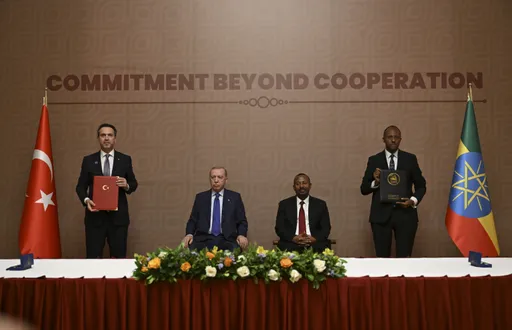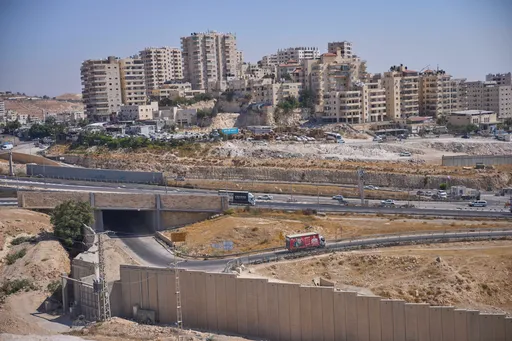On February 3, Pope Francis arrived in Abu Dhabi’s presidential palace and received a warm greeting from the emirate’s Crown Prince Mohammed bin Zayed. This historic visit, the first of a pontiff to the Arabian Peninsula, aims to build bridges at a time when Christians are victims of intolerant campaigns in the Middle East and populist politicians trot out Islamophobic narratives in the West.
Previous popes and the current pope have visited Muslim-majority countries like Lebanon, Turkey, Syria, Egypt, Jordan and Sudan in the past.
While in the United Arab Emirates (UAE), the Pope met with Sheikh Ahmed al Tayeb, the Grand Imam of Egypt’s Al Azhar mosque and university. The Head of the Catholic Church also celebrated an open-air mass for approximately 135,000 Catholics (mainly low-paid foreign workers) in what was the first one held in the Arabian Peninsula.
Shortly before leaving for the Emirates, Pope Francis praised the Arab monarchy for “striving to be a model for co-existence, human fraternity, and meeting of faiths and civilizations.”
The UAE’s leadership is undeniably using Pope Francis’ tour to promote their country’s image as a bastion of moderation, tolerance, and openness.
The UAE’s emphasis on inter-communal harmony and tolerance have been pillars of Abu Dhabi’s foreign policy for years. With a government 'ministry of tolerance' and large numbers of residents of many non-Muslim faiths (including roughly 800,000 Christians) who practice their diverse religions openly, the UAE is a marked contrast from its neighbour Saudi Arabia, where no churches, temples, or synagogues are tolerated.
The UAE frequently sells itself to the West as a unique, forward-thinking Gulf state that stands as a bulwark against hatred, violence and religious fundamentalism. But the country's intolerance towards the Muslim Brotherhood, which has won democratic elections in the neighbourhood, contrasted with its support for extreme groups runs contrary to that image.
Having named 2019 the UAE’s Year of Tolerance, the Emirati leadership maintains that this landmark Papal visit is demonstrative of the Gulf’s country’s tradition of being a “cradle of diversity”. Pope Francis’ tour will unquestionably sit at the centre of Emirati efforts to further promote their country on the global level while portraying the UAE as a driver of inter-faith dialogue.
Before departing for Abu Dhabi, the characteristically outspoken Pope also issued his strongest condemnation of the Yemen War to date.
The Head of the Catholic Church addressed the plight of children suffering from famine across the war-torn and impoverished Arabian country. After his arrival in the UAE, Pope Francis called on religious leaders to reject war during a speech that he delivered before the Emirates' Founders' Memorial in which the audience was filled with imams, rabbis, and swamis.
The Pope warned that the future of humanity could be jeopardised without people of all religions coming together against the “logic of armed power… the arming of borders, the raising of walls.” In addition to the war in Yemen, he called for ending the conflicts in Libya, Iraq, and Syria too.
In the lead up to Pope Francis’ visit to the UAE, human rights organisations and activists urged him to use his influence to put pressure on Abu Dhabi’s leadership to improve its human rights record both at home and abroad.
Groups like Human Rights Watch and Amnesty International have also been paying close attention to the case of imprisoned Emirati human rights activist, Ahmed Mansoor, whom such organisations have been calling on the UAE’s authorities to release immediately given that he’s a political prisoner.
Following the case of UK national and PhD researcher Matthew Hedges’ nearly seven-month detention in the UAE last year on charges of espionage (that London officials said were not based on evidence), human rights groups have been especially critical of the Emirati leadership and sceptical of its claims to stand for tolerance and openness.
Superficial tolerance?
Indeed, it is legitimate to ask what is the meaning of “tolerance” within the context of an extremely authoritarian Gulf monarchy that prohibits political parties and tolerates no political dissent?
Such questions bring into doubt the purpose of the Year of Tolerance, with some voices dismissing it as “empty rhetoric” and merely a “meaningless PR stunt.”
Ultimately, the UAE’s model of tolerance must be understood within the context of the Gulf country’s grander efforts to preserve a regional status quo that suffered a major jolt during the Arab Spring uprisings of 2011 which were driven by grassroots movements.
That groups like the Muslim Brotherhood achieved political and social gains following the Arab Spring revolts was particularly unsettling to Abu Dhabi - who views them as a threat to their monarchical status quo.
In response to the geopolitical tsunamis that fueled much instability after the fall of long-standing leaders in Egypt and other Arab states, Abu Dhabi grew increasingly committed to pushing for a new regional order that is staunchly intolerant of dissent and political activism in forms that Turkey, Iran, and Qatar have advocated.
As James Dorsey put it, Abu Dhabi’s push for religious tolerance combined with political intolerance is “part of a global struggle about values that underlines tectonic shifts shaping the new world order.”
Unquestionably, the UAE’s advocacy of inter-communal harmony factors into Abu Dhabi’s quest to sell its model of “secular” authoritarian stability to the West as well as the Emiratis’ genuine commitment to building bridges between different cultures through their country, which is home to expats from virtually all the world’s nations.
Notwithstanding legitimate reasons to scrutinise the UAE government’s narrative about “tolerance” and assess its meaning within the Emirati context, it is to the credit of Abu Dhabi’s leadership that the UAE became the first country in the Arabian Peninsula, the birthplace of Islam, visited by a Pope.
Thanks in no small part to Pope Francis, the Vatican’s relationship with the Islamic world has improved significantly since the controversy of 2006 that followed Pope Benedict XVI’s offensive remarks about the Prophet Mohammed and the Muslim faith.
This historic trip marks a watershed in efforts on the part of Westerners and Middle Easterners to move beyond toxic stereotypes and find more common ground from where followers of all Abrahamic religions can work together to address transnational crises and humanitarian disasters such as those plaguing the Arab world.























